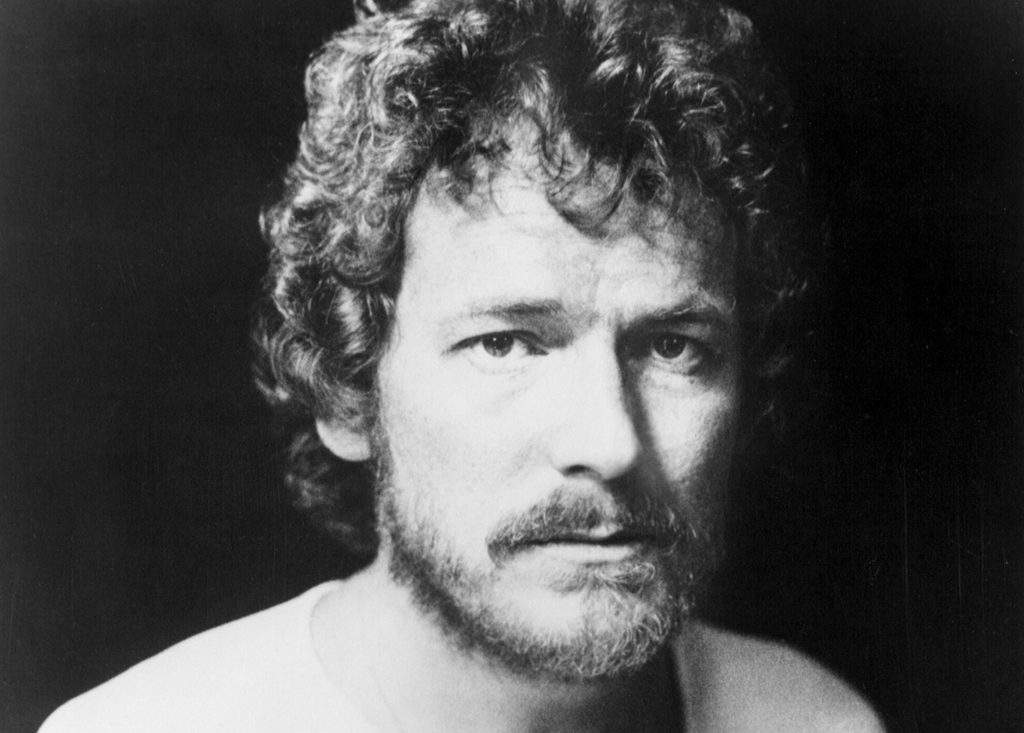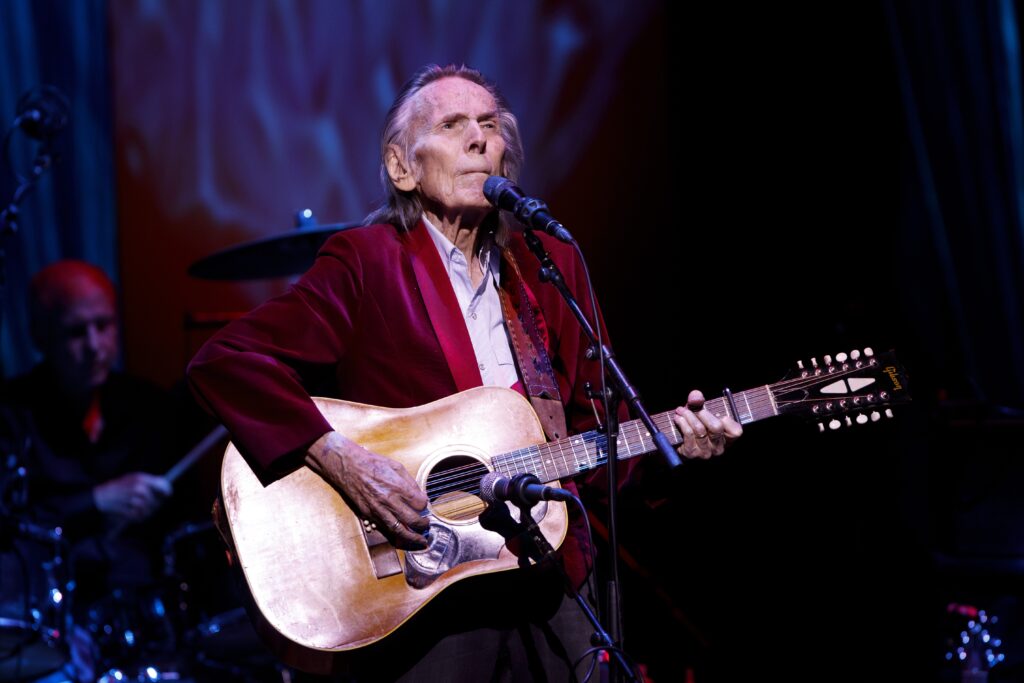
Gordon Lightfoot: The Folk Legend Who Painted Songs with Words
Gordon Lightfoot is a name synonymous with folk music, a Canadian troubadour whose timeless melodies and evocative lyrics have captivated audiences for over six decades.
Born Gordon Meredith Lightfoot Jr. on November 17, 1938, in Orillia, Ontario, Lightfoot’s journey from a small-town kid to a globally recognized folk icon is nothing short of remarkable. In this exploration of his life and career, we delve into the remarkable story of a man whose songs have become an indelible part of the tapestry of folk music.
Gordon Lightfoot’s humble beginnings in Orillia, Ontario, set the stage for his eventual ascent in the world of music. Growing up, he was immersed in the rich cultural and natural tapestry of the Canadian wilderness, an environment that would significantly influence his songwriting. Lightfoot’s parents played an essential role in shaping his musical inclinations. His mother, Jessie, recognized his talent early on and encouraged his musical pursuits.
From a young age, Lightfoot was exposed to various musical styles. The folk and country music of the time, including artists like Hank Williams and Burl Ives, left an indelible mark on his developing musical sensibilities. The traditional folk sounds of these early influences would later find their way into his own music.
Lightfoot’s foray into music began with his involvement in high school musical productions, where he displayed an early flair for both performing and writing songs. His first guitar was a gift from his mother, and he quickly learned to play and sing. By the time he was in his late teens, he was already performing at local venues in Toronto.
In 1958, Gordon Lightfoot made his debut at the Mariposa Folk Festival, a significant event in his career that marked his emergence as a folk artist. He gained recognition not only for his music but also for his storytelling abilities through songwriting. His ability to capture the essence of the Canadian experience through his lyrics was something that set him apart from many of his contemporaries.
The early 1960s saw Lightfoot making his mark in the Canadian music scene. He released his first album, “Lightfoot!”, in 1966, featuring songs like “For Lovin’ Me” and “Early Mornin’ Rain,” which would become some of his most celebrated compositions. The album showcased his ability to weave intricate stories into his songs, often drawing from his own experiences and observations.
The breakthrough came with the 1970 album “Sit Down Young Stranger,” featuring one of his most iconic songs, “If You Could Read My Mind.” The album’s success propelled him into international stardom and earned him his first Grammy nomination. “If You Could Read My Mind” remains a timeless classic, renowned for its poetic and introspective lyrics.
.
..
Throughout the 1970s, Lightfoot continued to release critically acclaimed albums, including “Summer Side of Life” (1971), “Don Quixote” (1972), and “Sundown” (1974). His distinctive style, characterized by soul-searching lyrics and melodious guitar work, continued to resonate with audiences around the world.
Gordon Lightfoot‘s songwriting is often described as a masterclass in storytelling. His lyrics are both deeply personal and universally relatable, drawing on themes of love, longing, nature, and the human experience. Lightfoot’s ability to evoke powerful imagery through his words is one of the hallmarks of his songwriting.
In “Canadian Railroad Trilogy,” Lightfoot paints a vivid picture of the construction of the Canadian Pacific Railway. The song is a historical epic, reflecting his deep connection to Canadian history and geography. His love for the natural beauty of Canada is also evident in songs like “Alberta Bound” and “Canadian Railroad Trilogy,” where he pays homage to the country’s vast landscapes.
Lightfoot’s lyrics often explore the complexities of human relationships. “If You Could Read My Mind” is a prime example, where he delves into the intricacies of love and communication. The song’s narrative quality and poignant introspection have made it a timeless favorite for listeners of all generations.
While many of Lightfoot’s songs are introspective and focused on personal experiences, he didn’t shy away from addressing social and political issues in his music. “Black Day in July,” written in response to the 1967 Detroit Riots, is a powerful protest song that speaks to the turbulence of the era. It’s a reminder of Lightfoot’s ability to merge personal storytelling with larger societal concerns.
Similarly, “The Wreck of the Edmund Fitzgerald” is a haunting ballad about the tragic sinking of the SS Edmund Fitzgerald in Lake Superior. The song serves as a tribute to the 29 crew members who lost their lives and highlights Lightfoot’s skill in using his music to remember and honor significant events.
Gordon Lightfoot’s contributions to the world of folk music have not gone unnoticed. He is often cited as a significant influence by a wide range of musicians and songwriters, including Bob Dylan, who once referred to Lightfoot as one of his favorite songwriters. His songs have been covered by numerous artists, further solidifying his status as a folk icon.
The impact of Lightfoot’s music extends beyond his songwriting. His warm, melodic voice, combined with his intricate guitar playing, has left an indelible mark on the folk genre. He paved the way for a new generation of folk artists who continue to draw inspiration from his work.
Like many artists, Gordon Lightfoot faced his share of personal challenges throughout his career. In the early 1980s, he went through a period of personal turmoil, which affected both his health and his career. Substance abuse issues led to several health scares, including a near-fatal abdominal hemorrhage in 2002. However, Lightfoot managed to overcome these challenges and continued making music.
His personal life also had its ups and downs, with multiple marriages and family dynamics. Nevertheless, his commitment to his music remained steadfast. His experiences, both joyful and challenging, found their way into his songs, contributing to the depth and authenticity of his music.
Gordon Lightfoot’s dedication to his craft and his enduring love for music weer evident in his later career. In 2012, he released his album “All Live,” showcasing his continued prowess as a performer. He embarked on numerous tours, captivating audiences with his live performances, even as he entered his later years.
.

.
Lightfoot received numerous accolades and honors over the years, including the Governor General’s Performing Arts Award and being inducted into the Songwriters Hall of Fame. His contributions to Canadian music were recognized when he was appointed a Companion of the Order of Canada, one of the country’s highest civilian honors.
Gordon Lightfoot’s legacy remained an integral part of the folk music landscape. His songs continued to resonate with audiences old and new, and his influence on the genre persisted. Lightfoot had retired from touring by that time, but his music lived on through recordings and the enduring impact he had on the music industry, and it’s safe to say that Gordon Lightfoot’s music will continue to be celebrated and cherished by folk enthusiasts for generations to come.
Gordon Lightfoot’s journey from a small Canadian town to international acclaim as a folk legend is a testament to his remarkable talent and dedication to his craft. His ability to tell poignant stories through song and his unwavering commitment to his music have left an indelible mark on the world of folk music. His songs are timeless, resonating with listeners across generations, and his legacy as a storyteller through music endures as a source of inspiration for artists and music lovers worldwide.
Gordon Lightfoot died of natural causes at Sunnybrook Health Sciences Centre in Toronto on May 1, 2023, at the age of 84.
Check out Gordon Lightfoot on Amazon.
If you liked this article, please share it with your friends and family, and why not check out some other Musicians who died in 2023.
.

